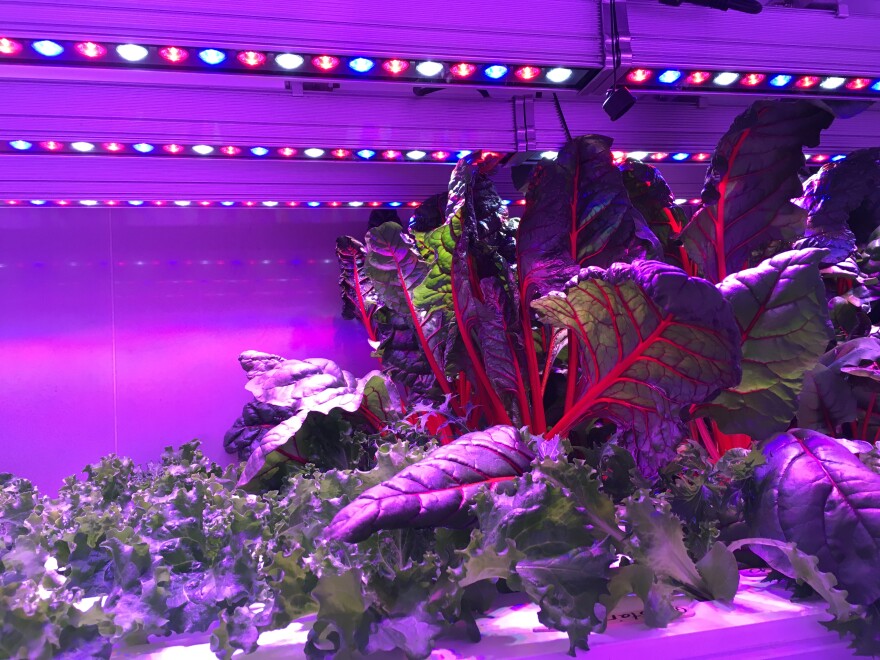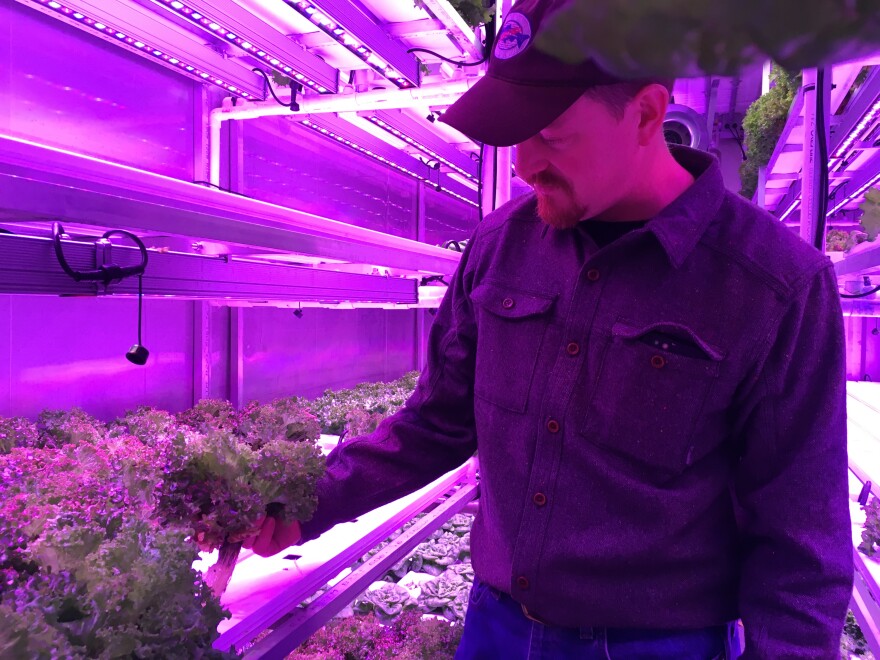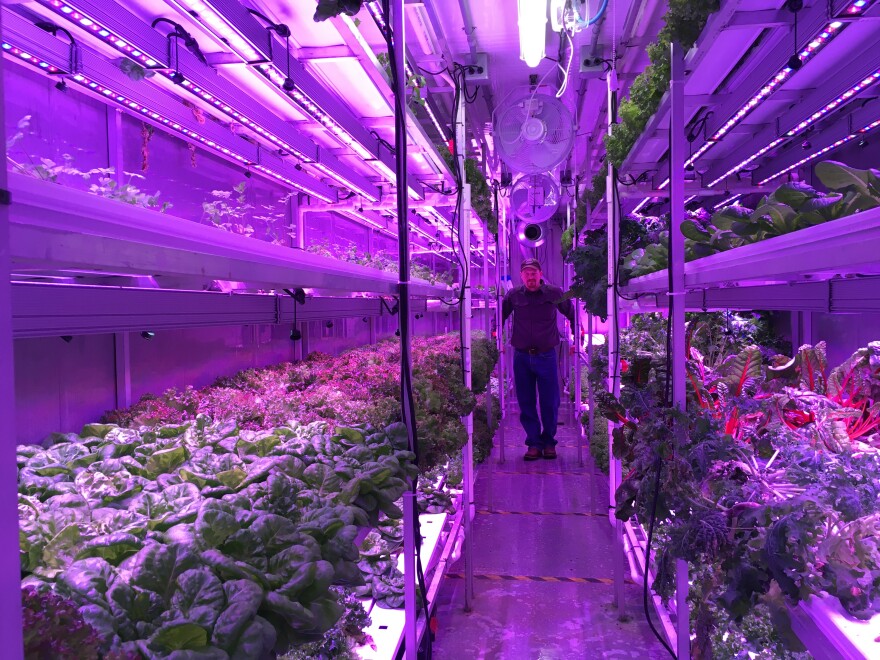Unhampered by the cold or by the dark, Belleque Family Farm supplies fresh, locally grown greens to Dillingham City School District and AC Value Center.
No wind. No critters. No rain. Just the whir of machines and the smell of basil greet Kyle Belleque as he inspects his hydroponic garden. This Dillingham resident and lifelong rural Alaskan has been gardening for years, but this year is the first time he’s grown a garden in a box. A containerized growing system to be more precise. Rows of succulent lettuce, kale, and chard fill floor to ceiling shelves on either side of this shipping container that has been converted into a hydroponic farm.
“Well lettuce is the main thing,” Belleque explains as he points to large head of lettuce. “You can see there’s green leaf. Here’s some young green leaf. There’s some green leaf, some red leaf. The butterhead stuff’s pretty popular. Got some romaine growing and then different greens.”
He’s also starting to grow some herbs. The basil and arugula particular are really taking off.
Year round access to fresh local produce has long been nearly impossible for rural Alaska. And for Belleque, that’s the draw to hydroponic gardening.
“Well you can grow all year. It’ll look like this in January. It’ll look like this in February. It’ll look like this

next June,” says Belleque. “You can keep growing. You can just keep growing and keep growing and keep growing.”
Hydroponics gives Belleque the chance to grow year round, but it also makes his farming operation more efficient.
“One of the things that makes it more economical than trying to garden out in the field--because it doesn’t take much time,” he says. “I spend, now that it’s up and running well, I don’t know--10 hours a week. Plus a few more hours to harvest and deliver stuff, so it’s really not that much of a time commitment.”
And that frees him up for marketing. Last week, Belleque Family Farms began selling their produce at the AC Value Center in Dillingham. He’s the first hydroponic farmer in town, but not the first in Alaska. Belleque is part of a larger movement to grow fresh food in Rural Alaska. Rene Perez manages the produce division for AC Value Centers says that his stores are partnering with two other hydroponic farms, one in Kotzebue and one in the Southeastern islands.
“That is one of our top priorities as far as the produce division is concerned is to support locally grown and the local industry,” says Perez.
Vicky MacDonald is the branch manager of the AC in Dillingham. She has been impressed by the quality.

“He picked it the same day he brings it, which you can taste the difference compared to what we were getting before, which was getting shipped from Washington.”
And she says that customers have been glad to see Belleque farms on their shelves.
Belleque’s other customer is the Dillingham City School District. Danny Frazier is the superintendent. He says that when they ship produce from other parts of the state or country sometimes as much as half of it comes wilted or frozen.
“We get fresher produce of course, and it’s something that the kids seem really happy to get and they're eating it. It’s something we want to do,” says Frazier.
Belleque Family Farms is starting out with two shipments a week to the AC, one or two shipments a week to the school, and that he already has other interested customers. Belleque says that gardening to the tune of pumps and fans isn’t as much fun as gardening outside where the wind is blowing and birds are chirping, but he is excited about his product. His customers, he says, even though they live in rural Alaska, have access to the freshest possible food year round.
Contact the author at avery@kdlg.org.




